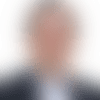Ju'an Williams' phone hasn't rung.
In any other year, the former University of New Haven wide receiver might already have earned an NFL contract and would be preparing to compete for a roster spot this summer. Instead, he's just preparing for a phone call that might never come.
COVID-19 threatens the readiness of all NFL rookies with no traditional OTAs or minicamps being held to this point. Those selected early in the draft at least have the leverage of status and contract investment to buy them a longer, more patient assessment once football resumes. But for hundreds of players like Williams, the coronavirus pandemic threatens their very football livelihoods.
Among three tiers of rookies -- drafted, undrafted priority free agents and tryout players -- Williams is in the bottom group that is most imperiled. He typifies the sort of player given an NFL tryout chance, having dominated the Northeast-10 Conference with a school-record 1,171 receiving yards in 2018 and a 18.9-yard punt return average in 2019. But as a Division II player -- only two D-II players were drafted this year -- he knew his opportunity would have to come in the draft's aftermath.
Teams typically bring in dozens of tryout players like Williams, without a contract, to fill out their rookie minicamps in May. The NFL's equivalent of college walk-ons, tryout players are long shots, to be sure, but every year teams are impressed enough to sign some and take them to training camp, often making room by cutting undrafted priority free agents in May when rookie minicamps end.
“A couple teams have told me they’d be shocked if there are any tryouts for these guys. Some teams who are at (the roster limit of) 90 now, they probably saw it coming that there wouldn’t be tryouts.” NFL agent Kevin Robinson
The ranks of tryout players who have risen to prominence include Super Bowl XLIX hero Malcolm Butler, Los Angeles Chargers four-time Pro Bowl CB Chris Harris Jr. and Minnesota Vikings two-time Pro Bowl WR Adam Thielen. Tryout players make team rosters ever year, whether it's on the practice squad, on the back end of the team's 53-man squad or as a starter. Last year, the Raiders found their punter of the future when they offered AJ Cole a tryout at their rookie minicamp. He emerged with a contract and beat out Johnny Townsend in training camp for the starting job. His 46-yard average in his first season ranked in the top half of the league and only four other punters landed more kicks inside the 20 than his 33.
But without traditional rookie minicamps this offseason (teams held virtual camps in May), 2020 tryout players might not get the chance to prove themselves like they would in a normal year.
"A couple teams have told me they'd be shocked if there are any tryouts for these guys," said agent Kevin Robinson of Capital Sports Advisors. "Some teams who are at (the roster limit of) 90 now, they probably saw it coming that there wouldn't be tryouts."
Williams, for his part, is forging on.
"Everybody in my situation will have their breaking point, where they feel like they're done and throw in the towel and do something else," Williams said. "But I'm working out every day, just staying ready. Not one ounce of me feels as if I'm done."
The first COVID-19-related blow to Williams' NFL hopes came March 10, when he got word that a pro day workout he was to participate in at Columbia University, scheduled to take place just two days later, was canceled. Another player in Williams' position, Washburn defensive back Josh Wright, had a pro day scheduled for March 13 at Pittsburg State canceled.
"It was a lot of work and money put into nothing, really, and you get your hopes up to earn at least a chance, instead of feeling the process has been wasted," said Wright, who was expected to test well at his pro day after also starring on his school's track team. "For me, I probably spent $1,400 or $1,500 (on training), but I know a lot of guys spent more than that."
From the perspective of NFL clubs, pro day cancellations were highly problematic. Some pro day events in early March -- in the week following the NFL Scouting Combine -- were conducted as scheduled. By mid-March, however, they were shelved across the board. It impacted even elite prospects, as first-round talents who skipped various workouts at the combine in anticipation of completing them at their pro days never got that chance. But for those who didn't even receive combine invitations, a canceled pro day workout was far more devastating.
"For me, the pro day was my combine," Williams said.
It left clubs with no way to put those players through physical testing of any kind leading up to the draft, as private workouts were shut down, as well. And it placed clubs in the position of evaluating those from smaller schools, like Williams, based only on game tape against inferior competition.
Consider Chargers running back Austin Ekeler, who played at D-II Western State (Colo.) and was invited to the University of Colorado pro day in 2017. He ran a sub-4.5 40-yard dash and was picked up by the Chargers post-draft as a priority free agent. He's now set to take on a full-time starting role in replacing Melvin Gordon, and signed a four-year contract in March worth up to $24.5 million.
"If these guys are showing up wide-eyed on Aug. 1, they'll be overwhelmed reporting straight to training camp without having any offseason program." Senior Bowl executive director Jim Nagy
"In this (2020) situation, you wouldn't have Austin Ekeler (in the NFL)," said Robinson. "We might not know who he is today if this had happened when he came out."
With each passing day, the 2020 rookie experience becomes more unique and challenging. Drafted rookies and undrafted priority free agents who were signed following the draft have the advantage of being involved with teams through videoconferencing and workouts provided by the clubs, and can at least prepare for training camps by learning a playbook. Still, the prospect of entering training camp without the benefit of rookie minicamp or fully involved OTAs is a daunting one. They're losing valuable practice time and have been deprived of supervised workouts in club facilities. Whatever relationship-building is lost in videoconferencing versus in-person contact, they're falling behind in that regard, as well.
"If these guys are showing up wide-eyed on Aug. 1, they'll be overwhelmed reporting straight to training camp without having any offseason program," said Senior Bowl executive director Jim Nagy, who spent 18 years as an NFL scout. "Having May and June in the building, there's a lot of value in that. That's going to be an issue for a lot of these guys."
To whatever extent NFL football is a trial by fire for rookies, the 2020 class of newcomers will redefine the term. Training camps could expose steep learning curves, begetting preseason corrections that could have been made in May. And for those that never even get a chance to become a rookie, there is hope that NFL teams hang onto their list of 2020 tryout players when 2021 tryouts come around next year.
"Even if things don't pan out this upcoming year, I'm committed to it," Williams said. "I need to know I gave everything I had and took a shot, and that shot might not be this year, but I'm going to take it whenever it comes."
Follow Chase Goodbread on Twitter at @ChaseGoodbread.













